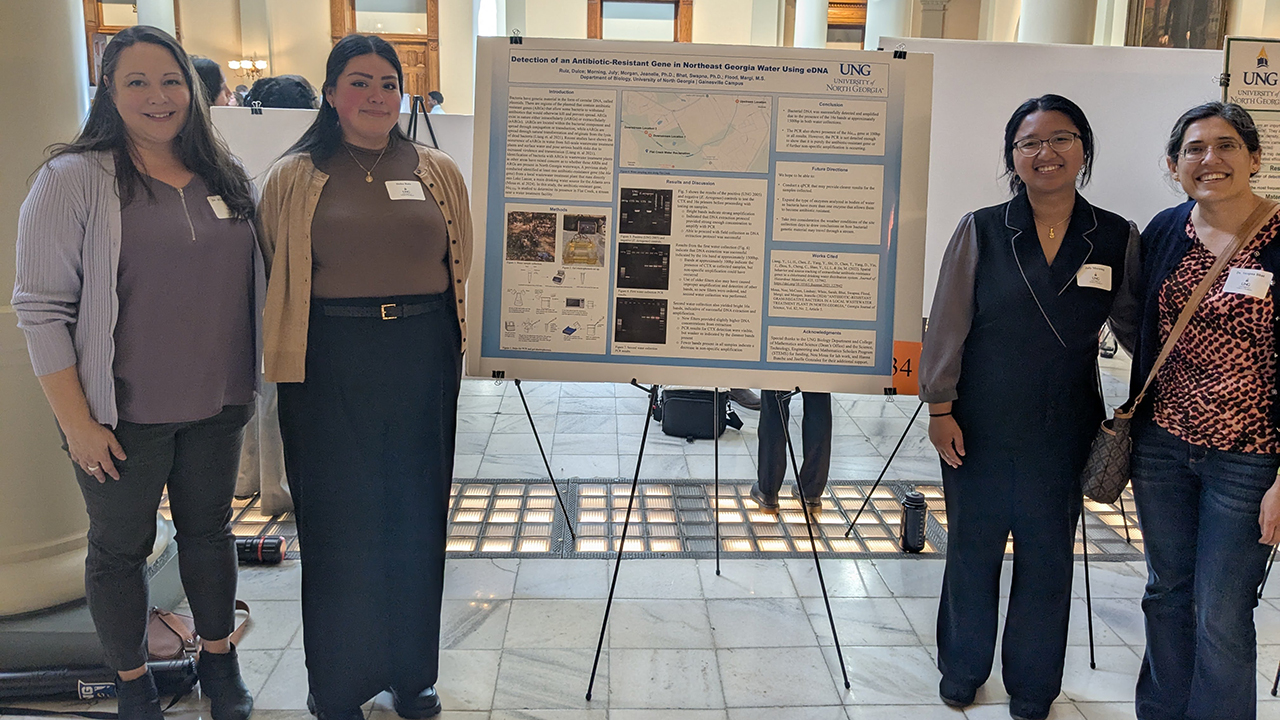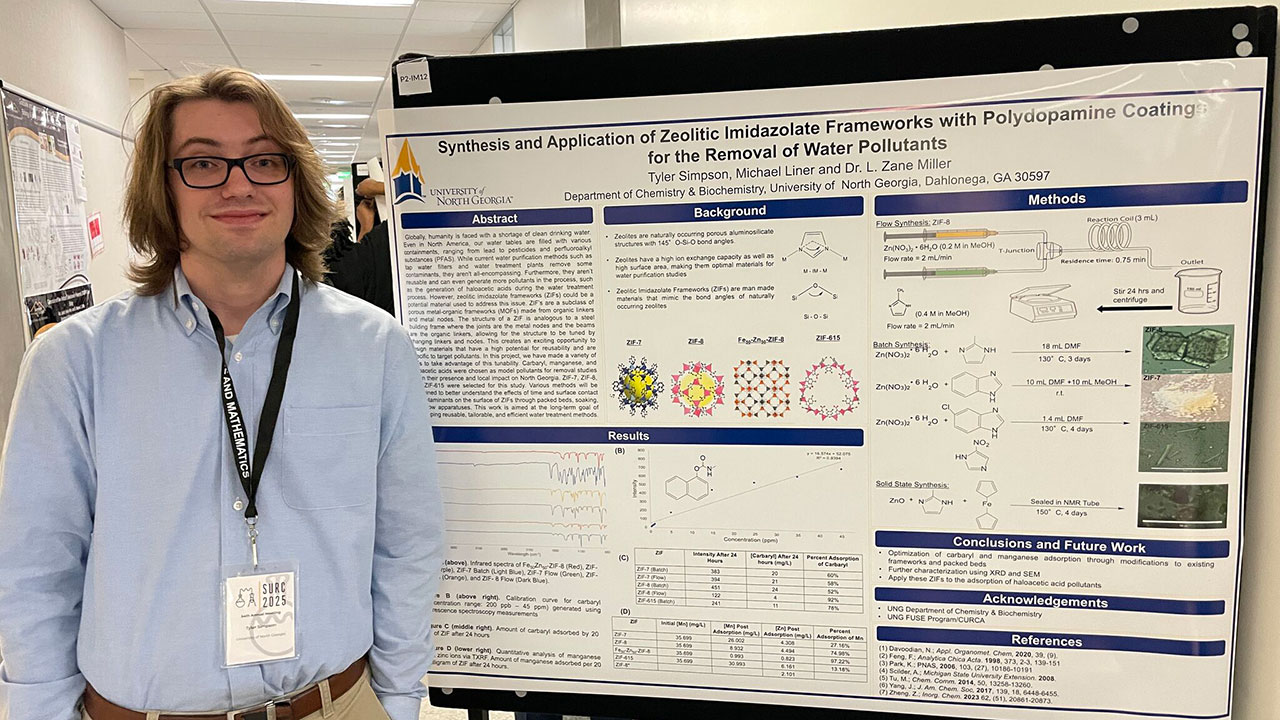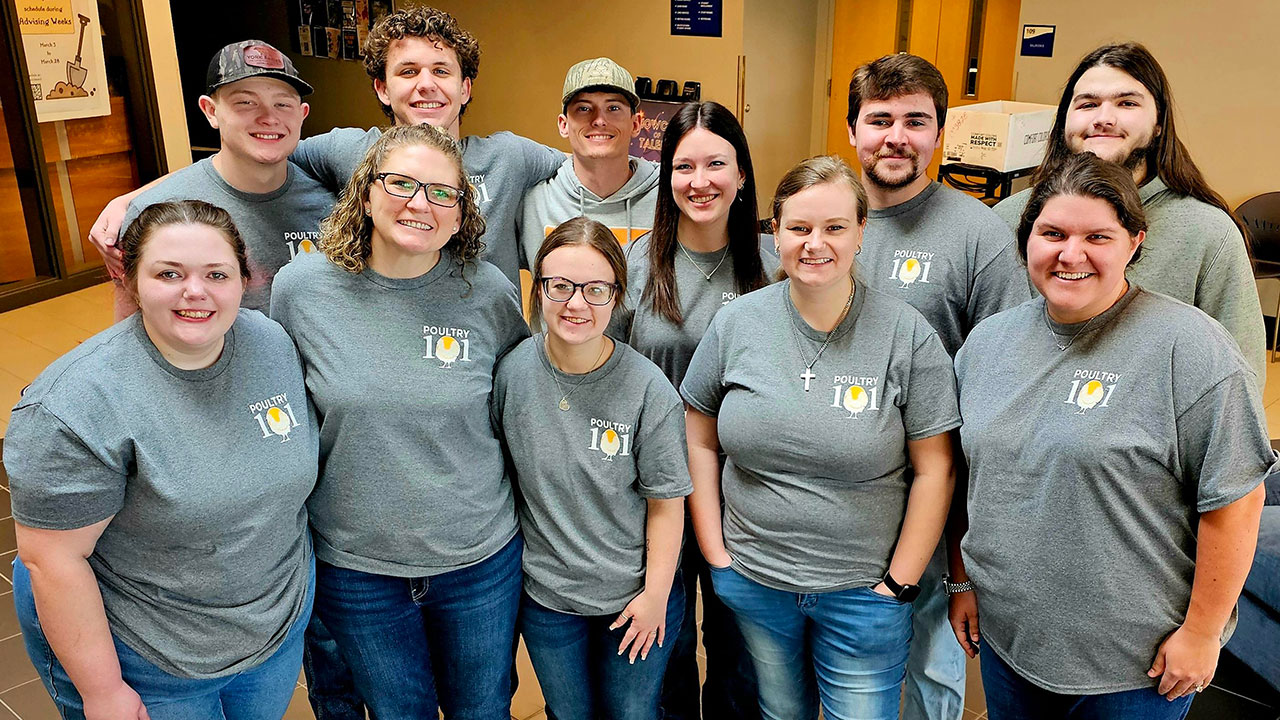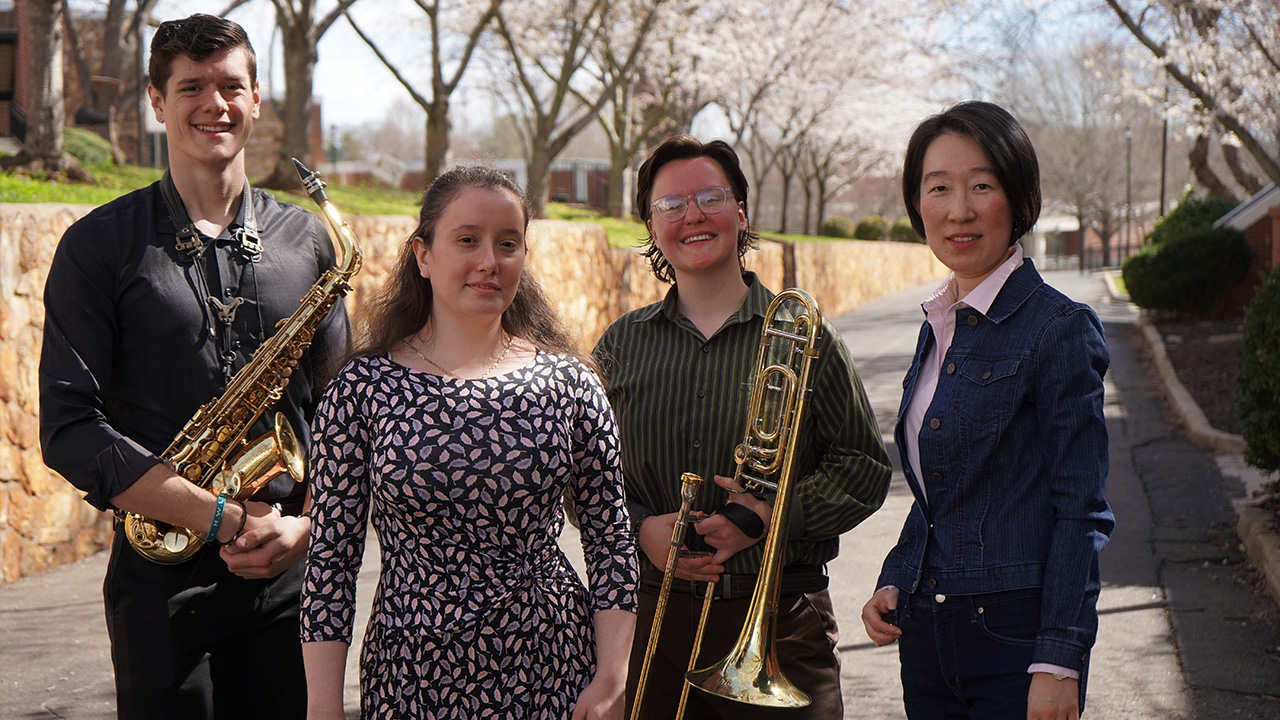S-STEM Scholars program fuels research and grad school aspirations for students

Article By: Clark Leonard
As Emily Storck finished dual enrollment, which allows eligible high school students to take college courses tuition-free and earn both high school and college credit, she knew she needed a way to cover the costs of being a regular college student at the University of North Georgia (UNG). The S-STEM Scholars program provided her that way.
A product of a $615,000 grant to UNG from the National Science Foundation's (NSF) Scholarship in Science, Technology, Engineering, and Mathematics (S-STEM) project, the program aims to increase the STEM workforce by recruiting and supporting academically talented, low-income students through degree completion, and partnering with employers to facilitate job placement.
The grant, which was awarded in summer 2015 and runs through June 2020, provides annual $4,362 stipends to each student in the program, plus additional funds to support their research. The program has 12 students each on UNG's Dahlonega and Gainesville campuses. The scholarships are competitive, and students must apply and be interviewed for acceptance.
The grant was the brainchild of Mike Bodri, then dean of the College of Science and Mathematics, with Dr. Natalie Hyslop, associate professor of biology and S-STEM adviser on the Gainesville Campus, as the principal investigator and Dr. John Holliday, professor of mathematics and S-STEM adviser on the Dahlonega Campus, as co-principal investigator. They authored the grant along with Charles Wood, former associate director of grants and contracts.
Storck, who applied in summer 2016, said the program has opened doors for research, conferences and graduate school. The senior from Buford, Georgia, pursuing a major in chemistry got an earlier start on her research than most students thanks to S-STEM. Her research seeks to improve chemistry labs for UNG students.
Storck also was recently selected for an NSF Research Experience for Undergraduates (REU), which will send her to Florida State University (FSU) to research light and matter with an FSU faculty member for 10 weeks this summer.
Jessica Hamilton, a junior from Dahlonega, Georgia, pursuing a degree in physics, is an S-STEM Scholar who earned a scholarship to intern at the Max Planck Institute for Solar System Research in Germany this summer.
Caroline Brown, a senior pursuing a degree in chemistry with a biochemistry focus, is another student who took advantage of the S-STEM resources. Her undergraduate research on enzymes has landed her acceptance into multiple graduate schools like Yale University and the University of Washington.
Brown, who is from Carrollton, Georgia, was one of the few undergraduate students invited to present her research at a conference at Rice University in Houston, Texas. Most have to apply.
Andrew Redman, a senior pursuing a degree in physics, said the 3.0 GPA requirement of S-STEM has motivated him. His GPA fell below that mark, and the Suwanee, Georgia, native had to work hard to get his grades up to rejoin the program.
S-STEM also served as the impetus for Redman's undergraduate research on space elevators, work he and his partner presented March 22 at UNG's Annual Research Conference (ARC).
Holliday said one of the program's main goals is to keep students from needing to work so many hours at a paid job that they can't properly focus on their studies.
That had been the case for Katie Horton, a senior from Clarkesville, Georgia, pursuing a degree in biology with a minor in chemistry. She works full time to put herself through school while caring for her pets. S-STEM has allowed her to take time off work as needed.
"It was a huge weight removed from my shoulders," Horton said. "This has helped me stay in college and do what I came to do."
Hyslop said the program prepares students for their next steps. Workshops include study skills, citations, time management, professionalism, resumes, cover letters and how to get into graduate school. Horton has found those workshops especially beneficial.
"It's helped take a lot of the fear out of applying to grad school," Horton said.



